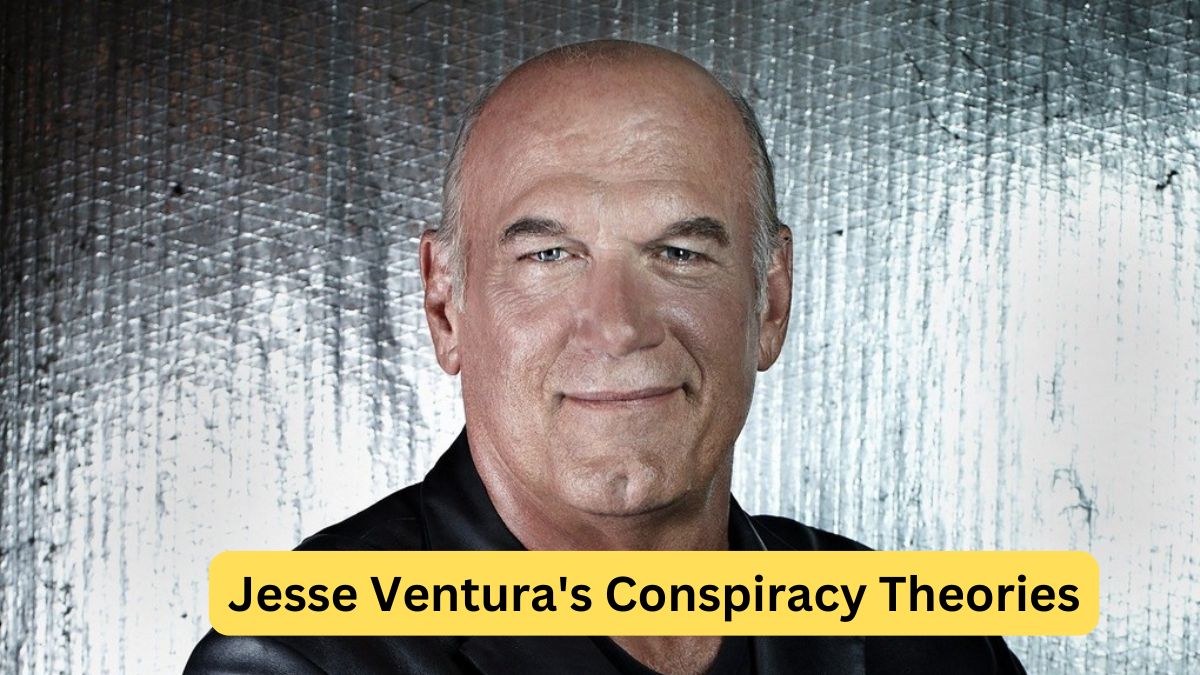Introduction: Jesse Ventura and the World of Conspiracy Theories
Jesse Ventura, the former professional wrestler and governor of Minnesota, has gained significant attention for his outspoken views on various conspiracy theories. His bold assertions have intrigued and sometimes alarmed the public, leading to heated debates and widespread discussions. This article aims to provide a comprehensive analysis of Ventura’s conspiracy theories, exploring their origins, implications, and the controversies they generate.
The Genesis of Jesse Ventura’s Conspiracy Theories
Jesse Ventura’s journey into the world of conspiracy theories began after his tenure as governor, a period during which he transitioned into media and public speaking. Known for his candid and often provocative style, Ventura started to delve into topics that challenged conventional wisdom. His conspiracy theories often address a range of subjects, from government cover-ups to hidden agendas within various global organizations.
Exploring the Key Conspiracy Theories
Ventura’s theories cover a broad spectrum of topics. Below, we delve into some of the most prominent conspiracy theories he has championed:
1. The New World Order (NWO)
One of Ventura’s most discussed theories is the concept of a New World Order (NWO). According to this theory, a secretive elite is working to establish a global authoritarian government that would centralize power and diminish national sovereignty. Ventura has claimed that global institutions and influential individuals are conspiring to create a one-world government that would erode individual freedoms and national autonomy.
Key Points:
- Global Governance: Ventura argues that organizations like the United Nations and the Bilderberg Group are key players in this conspiracy.
- Control Mechanisms: He suggests that the NWO uses economic crises, wars, and social upheaval to consolidate power and control.
2. 9/11 Truth Movement
Ventura has been a vocal advocate of the 9/11 Truth Movement, which questions the official account of the September 11, 2001, terrorist attacks. He believes that the true perpetrators of the attacks were not the individuals identified by the government but rather a covert faction within the U.S. government itself.
Key Points:
- Controlled Demolition Theory: Ventura supports the idea that the collapse of the World Trade Center towers was the result of a controlled demolition rather than just the impact of the hijacked planes.
- Government Complicity: He posits that elements within the government either facilitated or had prior knowledge of the attacks to justify subsequent military actions and curtail civil liberties.
3. HAARP (High-Frequency Active Auroral Research Program)
Ventura has also explored the HAARP program, a research initiative focused on studying the ionosphere. He has suggested that HAARP is not merely a scientific research project but rather a secret weapon capable of manipulating weather patterns and even triggering natural disasters.
Key Points:
- Weather Manipulation: Ventura claims that HAARP’s technology can be used to create severe weather conditions as a means of warfare or control.
- Global Impact: According to Ventura, HAARP’s capabilities extend to influencing seismic activities, such as earthquakes and tsunamis.
Impact of Ventura’s Theories on Public Perception
Ventura’s conspiracy theories have had a substantial impact on public perception, sparking both interest and skepticism. His views have influenced various segments of the population, from dedicated followers to casual observers intrigued by the provocative nature of his claims.
Public Reaction and Media Coverage
The media coverage of Ventura’s theories has been a mix of sensationalism and critical analysis. While some outlets highlight his theories as groundbreaking, others dismiss them as unfounded or extreme. The contrasting media portrayals have contributed to the polarized views surrounding Ventura’s claims.
Media Influence:
- Supportive Media: Some media platforms and alternative news sources promote Ventura’s theories, framing them as legitimate challenges to mainstream narratives.
- Critical Media: Mainstream media often critique Ventura’s theories, labeling them as conspiracy-driven without substantial evidence.
Ventura’s Theories and Their Validation
The validation of Ventura’s conspiracy theories remains a contentious issue. While some of his claims have elements that resonate with ongoing debates about government transparency and global power structures, others lack empirical support and are often debunked by experts.
Evidence and Counterarguments
To evaluate the validity of Ventura’s theories, it’s essential to consider both supporting evidence and counterarguments.
Evidence:
- Whistleblower Testimonies: Ventura cites various whistleblowers and insiders who purportedly confirm aspects of his theories.
- Research Studies: Some independent studies and investigations have explored similar concerns about government secrecy and covert operations.
Counterarguments:
- Lack of Credible Evidence: Many experts and researchers argue that Ventura’s theories lack concrete evidence and rely on speculation and anecdotal accounts.
- Scientific Rebuttals: Scientific analyses of HAARP and other programs have largely dismissed claims of weather manipulation and disaster triggering.
Conclusion: The Legacy of Jesse Ventura’s Conspiracy Theories
Jesse Ventura’s conspiracy theories have left a lasting impact on public discourse, challenging conventional narratives and prompting critical examination of governmental and global institutions. Whether one views Ventura’s theories as groundbreaking insights or mere conjecture, they undeniably contribute to the ongoing conversation about transparency, power, and accountability.
As Ventura continues to share his perspectives, the debate surrounding his theories will likely persist, reflecting broader concerns about trust, authority, and the search for truth in an increasingly complex world.
